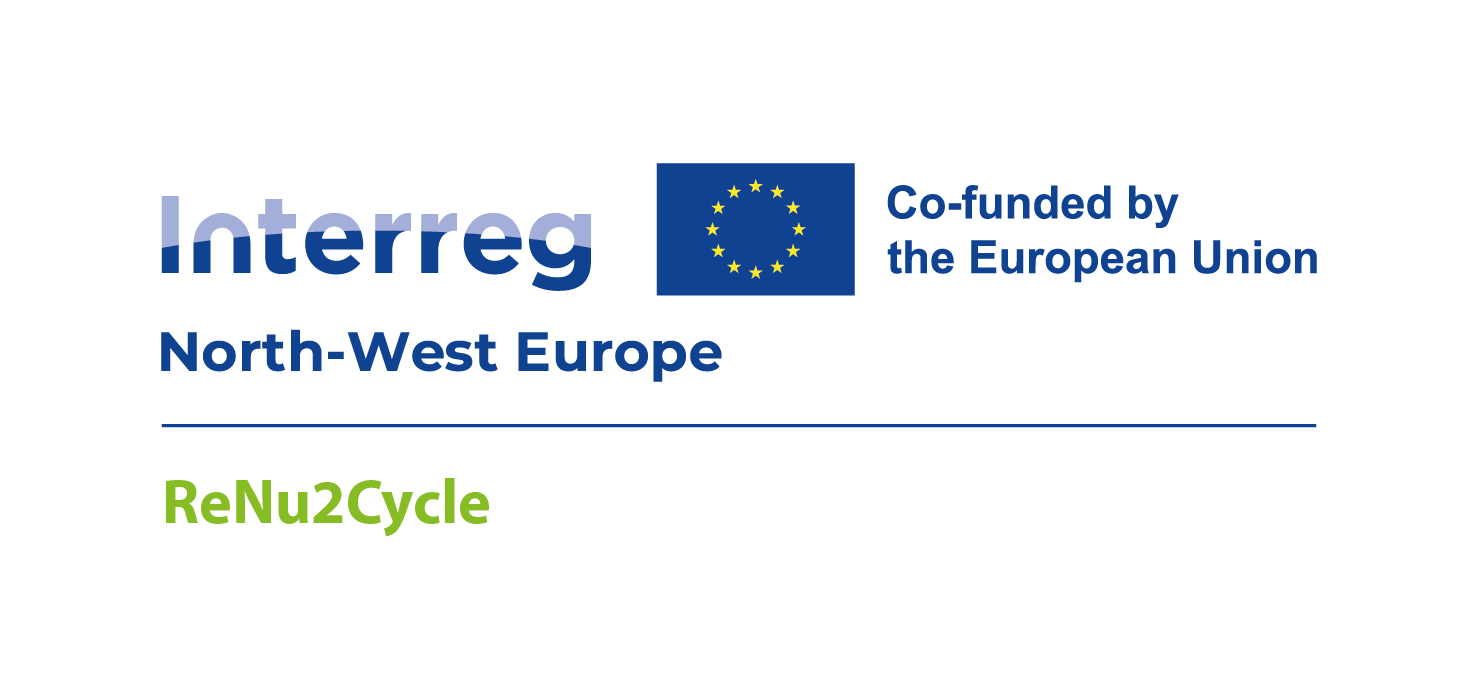The ReNu2Cycle project aims to reduce North West Europe’s dependency on fossil-based fertiliser imports through maximising the use of Recycling Derived Fertilisers (RDFs). The project will examine impacts on availability, ecological footprint & price stability via the use of recycled nitrogen (N), phosphorus (P) and potassium (K) from municipal, industrial and & agricultural food business waste streams. ReNu2Cycle is building on the achievements of ReNu2Farm (2017 – 2023) which provided regional quantified fertiliser demand research.
The project will look to adapt regional best-practices for North West Europe, with Living lab concepts encouraging long-term co-innovation & implementation support as part of the core ethos and methodological approach. All results from the 4-year project will be capitalised in a transregional nutrient supply-demand strategy & regional action plans designed to empower individuals, regions, and countries to grow the bioeconomy and maximise the use of recycled fertilisers. Stakeholders and resource owners (e.g., farmers), fertiliser producers (e.g., AD operators), traders & farming communities will benefit from this strategy.
The main activities undertaken by SIRIG will include stakeholder engagement, sustainability engagement, the development of a Life Cycle Assessment and associate inventory of RDF products, as well as an array of other research activities in collaboration with ReNu2Cycle’s project partners.
The project is funded through the Interreg NWE programme with a total project value of €4.9 million with €3.0 million sourced from the ERDF.
Project partners from education and research along with governance and advisory have aligned with the aim to deliver a cohesive transregional nutrient supply-demand strategy and regional action plans designed to develop RDF use across North West Europe. The project partners include:
- Lead partner: IZES gGmbH
- Munster Technological University
- South East Technological University
- University of Limerick
- Teagasc – the Agriculture and Food Development Authority
- District administration of Heidekreis
- Ghent University,
- Lower Saxony Network Renewable Resources and Bioeconomy e.V.
- Nutrient Management Institute
- eco:novis
- District administration of Rotenburg (Wümme)
- IMPACT
- Inagro

